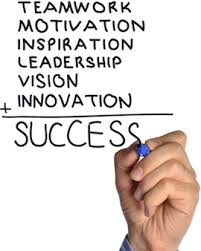 Last week I had the opportunity to attend a one-day event on ‘Leadership for a better student experience: What do senior executives need to know?’ jointly organised by the Leadership Foundation for Higher Education and the Higher Education Academy. The event’s topic, homonymous to Prof Ramsden’s 2013 stimulus paper, was particularly appealing to me on both a personal and professional level; coming from both an academic and research student background, I held somewhat crystallised views as to what I thought shaped the student experience. I did not however anticipate the breadth of research and discussion that I would be exposed to during this event. The student experience is a longstanding hot topic spearheading any discussion revolving around the HE sector; more often than not, student experience seems to translate directly into deciphering NSS scores and their impact on an institution’s standing within HE league tables.
Last week I had the opportunity to attend a one-day event on ‘Leadership for a better student experience: What do senior executives need to know?’ jointly organised by the Leadership Foundation for Higher Education and the Higher Education Academy. The event’s topic, homonymous to Prof Ramsden’s 2013 stimulus paper, was particularly appealing to me on both a personal and professional level; coming from both an academic and research student background, I held somewhat crystallised views as to what I thought shaped the student experience. I did not however anticipate the breadth of research and discussion that I would be exposed to during this event. The student experience is a longstanding hot topic spearheading any discussion revolving around the HE sector; more often than not, student experience seems to translate directly into deciphering NSS scores and their impact on an institution’s standing within HE league tables.
It was refreshing to see therefore, that student experience actually translated into a multi-levelled and well-rounded concept focused around the skill sets and knowledge needed by HE senior executives in avoiding common caveats and emphasising instead on students as active participants in their education. The day was designed around Prof Ramsden’s stimulus paper keynote talk, with two presentation sessions and subsequent panel discussions on either side.
The first panel presentation and discussion focused on recent research work on the student experience, with panellists’ backgrounds spanning the NUS, King’s Learning Institute (King’s College, London), and the University of the West of England, Bristol. Each of the projects highlighted the need to actively engage with the student body and really hone in on the aspects of University education that seem to both attract and detract students. The need for collaboration between students, academic, and professional HE staff was the key underlying theme, recurring in much of the student satisfaction research work presented. The second round of panel presentations/discussions emphasised on the methodologies so far used in gauging student satisfaction; once again, a range of talks attempting to highlight the most efficient means of capturing key elements of the student experience was introduced, alongside discussion on advantages and disadvantages of the method behind the conclusions.
The highlight of the day was Prof Ramsden’s talk on his stimulus paper; the paper was specifically targeted towards the skills and knowledge that senior HE executives such as pro and deputy Vice Chancellors need to incorporate in their practice, to ensure a high quality education in an ever-competitive market. Prof Ramsden outlined four key themes derived from his research; developing a vision by including students in the process, inspiring ownership of the vision by investing in the development of leadership in HE employees who are closest to students, balancing between managerial and collegiate imperatives, and using evidence to promote a sense of collective responsibility. Following the keynote, we broke into small table discussions focusing on the logistics of implementing such a shift of focus; an overarching theme coming from the discussions was on how academics, the student body (through SU representation), professional staff and senior executives need to engage in active collaboration and in the instilling of collective and inclusive responsibility.
I left from the event feeling hopeful on the future of the HE sector; it seems as though the spotlight is slowly being turned towards a spirit of collaboration which through carefully thought-out research can lead to the successful improvement of student experience.

